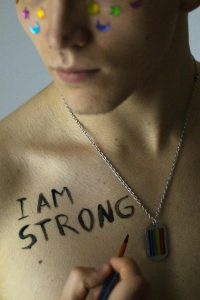If you’ve stumbled upon this blog, you might be wondering, “What is GSRD?” Well, you’re in the right place! Let’s dive into everything you need to know about GSRD, from what it is and what you need to know, to how it can impact your life and mental health.
Understanding GSRD
GSRD stands for Gender, Sexual, and Relationship Diversity. It’s a term that encompasses the wide range of human experiences and identities beyond traditional gender roles, sexual orientations, and relationship structures. It’s all about recognising and respecting that people can identify and love in many different ways.
In our modern world, it’s important to acknowledge that not everyone fits into the neat categories of male/female or straight/gay. GSRD includes a variety of identities such as transgender, non-binary, queer, bisexual, polyamorous and many more. It’s a celebration of diversity and a call for inclusivity.
Why Does GSRD Matter?
So, why is GSRD important? Understanding and respecting GSRD can greatly improve mental health and wellbeing. When people feel accepted for who they are, they’re less likely to experience the negative effects of discrimination and rejection, like anxiety, depression and low self-esteem.
For therapists and mental health professionals, being knowledgeable about GSRD is crucial. It allows them to provide better support and create a safe space for all clients, regardless of their gender identity, sexual orientation or relationship style.
Common GSRD Identities and Terms
Let’s break down some of the terms you might come across when learning about GSRD:
- Gender Identity: This refers to how someone personally identifies their gender, which may or may not align with the sex they were assigned at birth. Common identities include transgender, non-binary and genderqueer.
- Sexual Orientation: This describes who someone is attracted to. It includes identities like heterosexual, homosexual, bisexual, pansexual and asexual.
- Relationship Diversity: This covers the different ways people can structure their romantic and sexual relationships. Examples include monogamy, polyamory, open relationships and relationship anarchy.
The Importance of Language
Language plays a huge role in GSRD. Using the correct terms and pronouns shows respect and understanding. For instance, asking someone their preferred pronouns or using gender-neutral terms until you know someone’s identity can make a big difference.
It’s also important to stay updated on evolving language. Terms and identities can change over time as our understanding of gender, sexuality and relationships grows. Being open to learning and adapting is key.
Challenges Faced by GSRD Individuals
Despite growing awareness, individuals who fall under the GSRD umbrella often face unique challenges:
- Discrimination and Stigma: Many people still face prejudice and bias, which can lead to social exclusion and mental health issues.
- Misunderstanding and Lack of Awareness: There’s still a lot of misinformation out there about GSRD. This can lead to people feeling misunderstood and unsupported, even by well-meaning friends and family.
- Mental Health Struggles: The stress of dealing with discrimination, stigma, and lack of acceptance can take a toll on mental health. Anxiety, depression and suicidal thoughts are sadly very common among GSRD individuals.
How Therapy Can Help
Therapy can be incredibly beneficial for GSRD individuals:
- Providing a Safe Space: A good therapist creates a non-judgmental environment where clients can express themselves freely.
- Affirmative Therapy: This approach specifically supports and validates GSRD identities, helping clients feel seen and understood.
- Education and Resources: Therapists can offer information and resources to help clients navigate their identities and relationships in a healthy way.
- Coping Strategies: Learning strategies to deal with discrimination and mental health challenges can empower clients to lead happier, healthier lives.
Being an Ally
If you’re not part of the GSRD community yet want to be supportive, here are some tips:
- Educate Yourself: It shouldn’t be the responsibility of a GSRD individual to educate you. Take the time to learn about GSRD and the experiences of people within this community.
- Listen and Validate: Listen to people’s experiences without judgment and validate their feelings and identities.
- Speak Up: If you witness discrimination or harmful behaviour – and there’s still a lot of it around – speak out against it. Being an ally means standing up for what’s right.
- Use Inclusive Language: Make an effort to use the correct terms and pronouns and avoid making assumptions about someone’s identity.
 Final Thoughts
Final Thoughts
Understanding GSRD is a journey, and it’s okay to not have all the answers right away. The important thing is to approach it with an open mind and a willingness to learn. Whether you’re part of the GSRD community or an ally, we can all contribute to a more inclusive and understanding world.
Everyone deserves to feel seen, heard and respected for who they are. If you or someone you know is struggling with GSRD-related issues, reaching out to a knowledgeable therapist can make a big difference. Let’s work together to support and celebrate the beautiful diversity of human experience.

